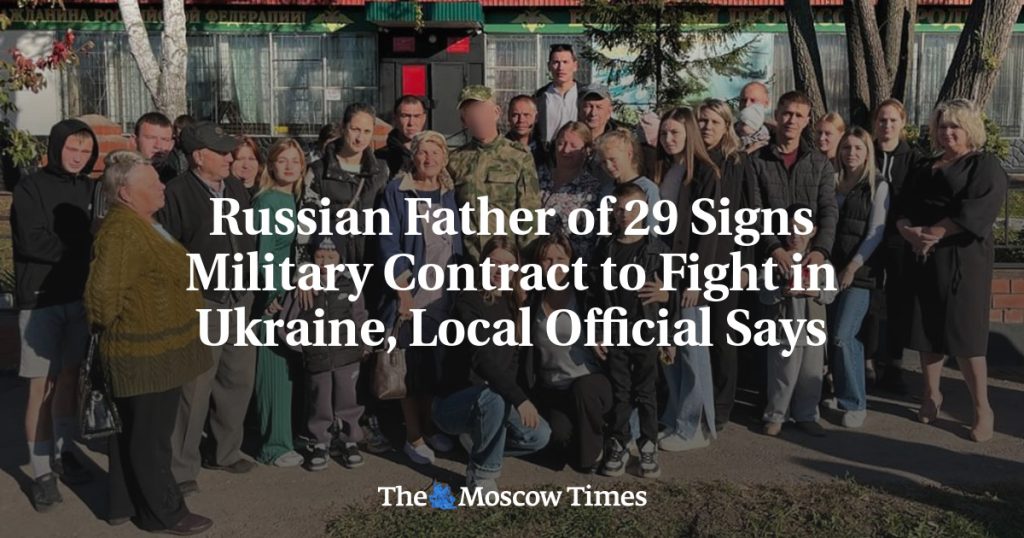A 57-year-old father of 29 biological and adopted children from the Republic of Bashkortostan in Russia signed a military contract to fight in Ukraine. The decision to enlist was motivated by a sense of patriotism and civic duty, despite the difficulty it posed for his large family. The man, Vakhid Valiyev, stated that two of his sons are already serving in the special military operation in Ukraine, leading him to feel obligated to join as well. The local official, Anna Karabanova, praised Valiyev and his family for their exemplary participation in local community projects.
Details of Valiyev’s military service were not disclosed, but it is known that the region of Bashkortostan offers increased military contract payments to recruits. The one-time sign-on bonus for soldiers in Bashkortostan is 505,000 rubles ($5,500), in addition to federal government payments. This incentive is part of Russia’s broader efforts to boost recruitment for the war in Ukraine, with regions across the country doubling their efforts to enlist soldiers. Bashkortostan specifically has seen a high military death toll in Ukraine, with 2,705 soldiers reported killed from the region according to BBC Russia and Mediazona.
Valiyev’s decision to enlist reflects the complex moral and personal considerations facing individuals and families in Russia amid the war in Ukraine. While some may view it as a patriotic duty to defend their country, others may question the motives and consequences of participating in a conflict seen by many as unjust or aggressive. The fact that Valiyev’s own sons are already serving in Ukraine adds another layer of complexity to his decision, as he may feel a familial obligation to join them in the fight.
The situation in Ukraine has sparked a wave of nationalistic fervor in Russia, with the government promoting a narrative of defending Russian interests and protecting ethnic Russians in Ukraine. This propaganda has played a significant role in shaping public opinion and garnering support for the war effort, despite growing international condemnation and sanctions against Russia. The recruitment of soldiers like Valiyev underscores the broader societal pressures and influences that individuals must navigate when making decisions about military service in times of conflict.
The impact of Valiyev’s decision on his family, particularly his 29 children, is also worth considering. The emotional toll of having a parent go off to war, potentially never to return, can have lasting effects on children and spouses left behind. The financial support provided by the military contract may offer some reassurance, but it cannot replace the absence of a loved one or the trauma of living through a conflict situation. Valiyev’s family, already known for their community involvement, may now face even greater challenges and uncertainties as they navigate this new chapter in their lives.
Overall, the story of Vakhid Valiyev encapsulates the personal, familial, and societal complexities of individuals enlisting in the military to fight in Ukraine. His sense of duty and loyalty to his country, along with the pressures of family responsibilities and societal expectations, highlight the difficult choices facing many Russians in the current geopolitical climate. As the war continues and the human cost mounts, it is essential to recognize and empathize with the individual stories and sacrifices being made on both sides of the conflict.


